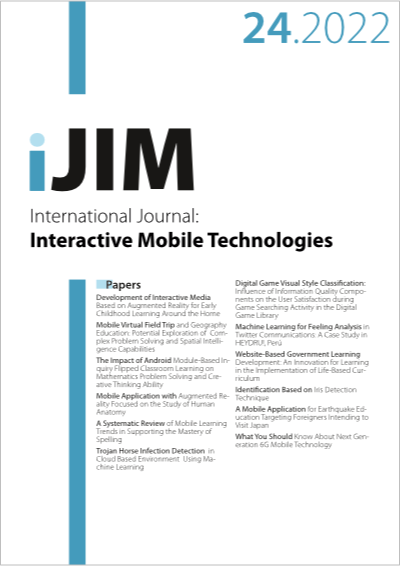Trojan Horse Infection Detection in Cloud Based Environment Using Machine Learning
DOI:
https://doi.org/10.3991/ijim.v16i24.35763Keywords:
Cloud computing, trojan Horse attacks, dynamic Analysis, detection, machine learningAbstract
Cloud computing technology is known as a distributed computing network, which consists of a large number of servers connected via the internet. This technology involves many worthwhile resources, such as applications, services, and large database storage. Users have the ability to access cloud services and resources through web services. Cloud computing provides a considerable number of benefits, such as effective virtualized resources, cost efficiency, self-service access, flexibility, and scalability. However, many security issues are present in cloud computing environment. One of the most common security challenges in the cloud computing environment is the trojan horses. Trojan horses can disrupt cloud computing services and damage the resources, applications, or virtual machines in the cloud structure. Trojan horse attacks are dangerous, complicated and very difficult to be detected. In this research, eight machine learning classifiers for trojan horse detection in a cloud-based environment have been investigated. The accuracy of the cloud trojan horses detection rate has been investigated using dynamic analysis, Cukoo sandbox, and the Weka data mining tool. Based on the conducted experiments, the SMO and Multilayer Perceptron have been found to be the best classifiers for trojan horse detection in a cloud-based environment. Although SMO and Multilayer Perceptron have achieved the highest accuracy rate of 95.86%, Multilayer Perceptron has outperformed SMO in term of Receiver Operating Characteristic (ROC) area.
Downloads
Published
How to Cite
Issue
Section
License
Copyright (c) 2022 Dr. Hasan Kanaker, Dr.Nader Salameh , Dr.Samer A. B. Awwad , Dr. Nurul H.A. Ismail , Dr. Jamal Zraqou , Dr. Abdulla M. F. Al Ali

This work is licensed under a Creative Commons Attribution 4.0 International License.



